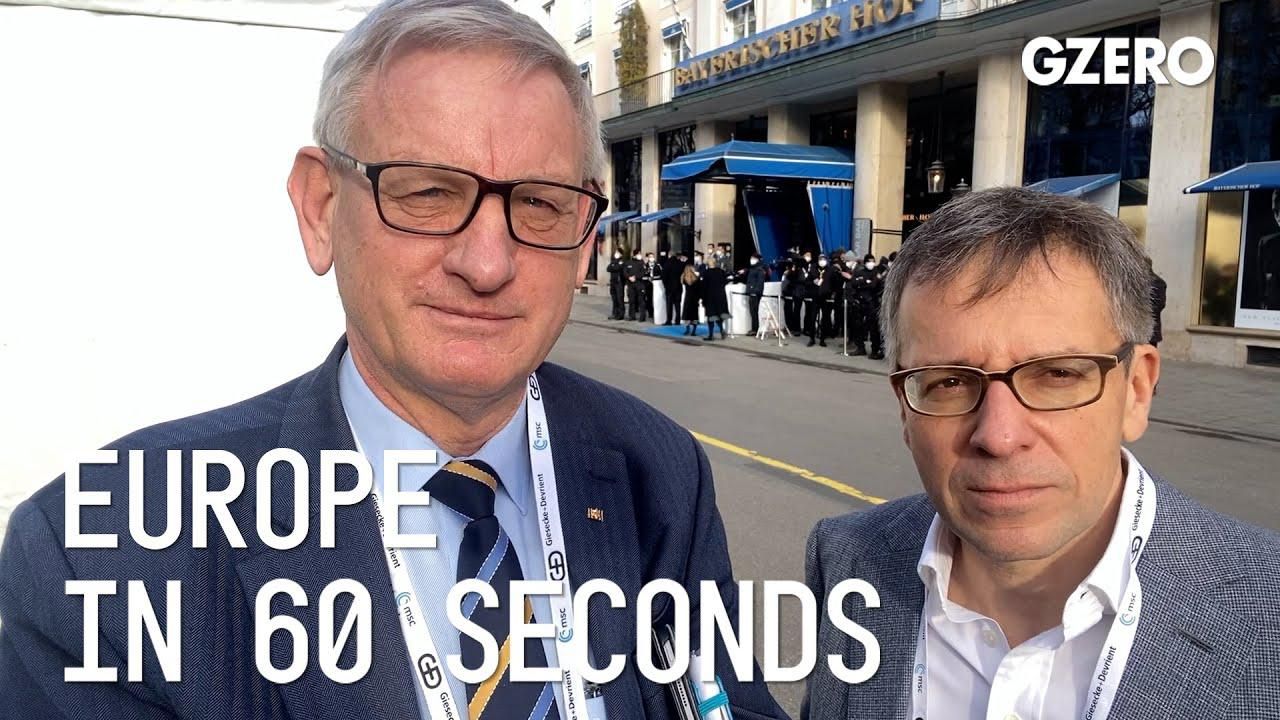
Carl Bildt, former Prime Minister and Foreign Minister of Sweden, is joined by Ian Bremmer, president of Eurasia Group and GZERO Media, to provide perspective on the Ukraine crisis at the Munich Security Conference.
Carl Bildt: This is the most dramatic conference that I think every one of us has experienced. I mean, there seems to be significant probability of war breaking out in Europe within days. We have the Ukraine president, we'll see if he will come during the day, but we have an assortment of European leaders and vice president of the United States. And everyone is discussing, can anything more be done to prevent war? And what really do we do if it breaks out?
Ian Bremmer: And it's kind of funny. The theme of the conference this year is helplessness. And when I flew in, I'm like, "That's a horrible theme for the conference." But actually, as it plays out, it's starting to feel a little bit more on target.
Carl Bildt: Yeah. But a lot of sort of resolute speeches here, a lot of cohesion among Europeans, across the Atlantic. If war breaks out, the world will change.
Ian Bremmer: It will. I think, and I'm quite surprised that Zelenskyy is not staying in Kyiv. I hope he brings an extra suitcase or two. But I mean, there is no question. The one good piece of news is that I've never seen the NATO Alliance this cohesive, frankly, in terms of the way that they're responding to this challenge.
Carl Bildt: And the same applies to Europeans.
Ian Bremmer: Absolutely.
Carl Bildt: Where there have always been significant divisions on how you deal with Russia. And some have taken a more benevolent view of Russia. But what might happen is, of course, that Mr. Putin is going to confirm some of the darkest predictions of where Russia is heading.
Ian Bremmer: But if there is a silver lining in all this is that the Swedish-American partnership, as you see, remains resolute as ever.
Carl Bildt: Well, so far.
Ian Bremmer: Well, I mean, you know?
Carl Bildt: Yeah. Can't get everything.
Ian Bremmer: I mean, we've had a bunch of breakfasts. Let's put it that way.
Carl Bildt: Too, too true.
Ian Bremmer: Yeah.
Carl Bildt: Okay.
Ian Bremmer: Very good.
Carl Bildt: Off from Munich.
Ian Bremmer: Off from Munich.